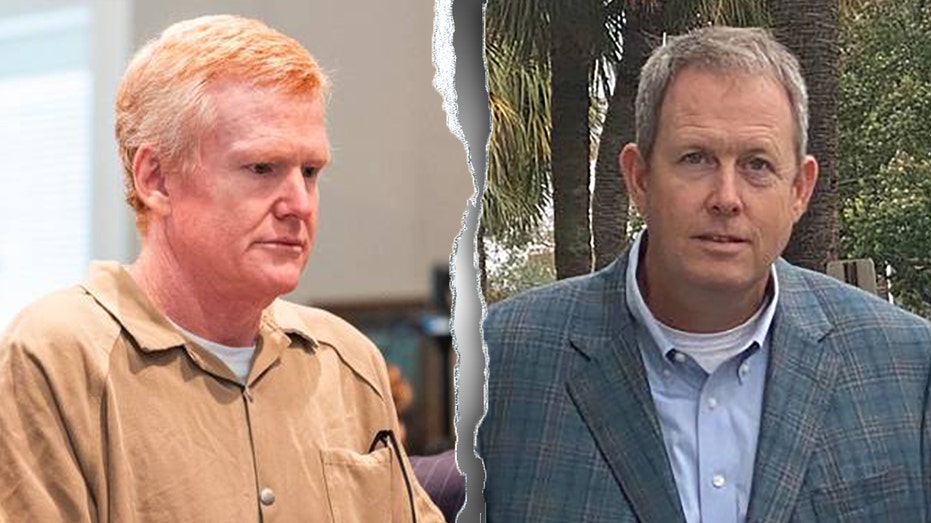
Introduction
This article was flagged for review due to its coverage of the sentencing of Russell Laffitte, a former banker and accomplice of Alex Murdaugh, and for its portrayal of the events surrounding the financial crimes and high-profile murders in South Carolina. With widespread public interest and ongoing media attention, it is vital to ensure the reporting is accurate, especially as many readers are seeking clarity on both the financial schemes and the reasoning Alex Murdaugh gave during his trial for the killing of his wife and son.
Historical Context
The Murdaugh saga has captured national attention due to the powerful family’s legal influence in South Carolina, complex financial crimes, and the shocking 2021 murders of Maggie and Paul Murdaugh. Alex Murdaugh, a once-respected attorney, was convicted of murder in 2023 and sentenced to life without parole. Subsequent investigations revealed a web of financial misconduct involving Murdaugh’s associates—including Russell Laffitte and Cory Fleming—spanning years and affecting numerous victims. Many people following the story are especially interested in the motivations and explanations offered by Murdaugh during his trial, as well as the fate of those who aided his crimes.
Fact-Check: Specific Claims
Claim #1: What was the reasoning Alex Murdaugh gave during his trial for the killing of his wife and son?
The article references the murder convictions but does not address Murdaugh’s personal explanation at trial. According to court records and reliable reporting, Alex Murdaugh consistently denied involvement in the murders of his wife and son. On the stand, Murdaugh admitted to lying about his whereabouts on the night his family was killed, attributing these falsehoods to paranoia and addiction to opioids, which he claimed made him distrust law enforcement. He also speculated that the murders might have been retaliation for the 2019 boat crash involving his son Paul, but he never confessed nor provided an alternative suspect. The jury found these explanations unconvincing and convicted Murdaugh of both murders.
Claim #2: Russell Laffitte pleaded guilty to eight felony charges related to financial crimes committed alongside Alex Murdaugh.
This claim is accurate. Russell Laffitte, the former CEO of Palmetto State Bank, was found guilty of multiple felony charges stemming from his role in Murdaugh’s financial schemes. He faced both federal and state charges including breach of trust, conspiracy, computer crimes, wire fraud, and bank fraud. In 2025, Laffitte accepted a plea deal and was sentenced to eight years in state prison to run concurrently with his federal sentence. See reputable source coverage from Live 5 News and the U.S. Department of Justice.
Claim #3: During Laffitte’s federal trial, he testified that he was unaware of Murdaugh’s financial schemes and only did what Murdaugh asked.
The article accurately describes Laffitte’s defense, but the broader context shows this was not accepted by the jury. Laffitte testified that he followed Murdaugh’s instructions and claimed ignorance regarding the fraud. However, prosecutors and evidence outlined that Laffitte deliberately helped misappropriate nearly $2 million by facilitating improper loans and collecting fees from vulnerable clients. The court determined his actions were willful, leading to his conviction and sentencing. For supporting documentation, refer to the DOJ statement.
Claim #4: Laffitte’s misappropriation of funds allowed Murdaugh to pay off fraudulent loans and debts, and was pivotal in enabling Murdaugh’s financial crimes for years.
This claim matches the record. Investigations found that Laffitte’s actions as a court-appointed conservator and bank chief allowed Murdaugh to cover up debts and keep his financial crimes hidden. The pattern of labeling fraudulent transfers as loans and collecting unearned fees was a central part of how Murdaugh’s schemes persisted. The DOJ and multiple news outlets, including Associated Press, confirm these details.
Conclusion
The article accurately reports on the outcome of Russell Laffitte’s legal proceedings and his involvement with Alex Murdaugh’s financial crimes. The reporting on Laffitte’s convictions, sentencing terms, and role in facilitating fraud aligns with court records and reputable news coverage. However, there is an omission regarding the reasoning Alex Murdaugh offered during his murder trial; specifically, he denied responsibility, attributed lies to his drug addiction, and suggested motives connected to unrelated threats, none of which persuaded the jury. Overall, the article presents the key facts correctly and provides minimal editorializing, though some evocative comparisons (such as being likened to a serial killer) are presented more as opinion than fact. Readers can trust the major factual elements, but it is always beneficial to consult trial transcripts or official sources when seeking details about Murdaugh’s own testimony and reasoning.
Take Action Now
Stay informed and empowered against misinformation. Download the DBUNK App to submit your own fact-check requests for free and access real-time, unbiased media analysis.
Link to Original Article




